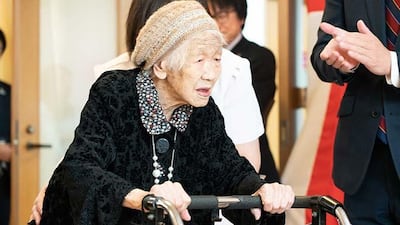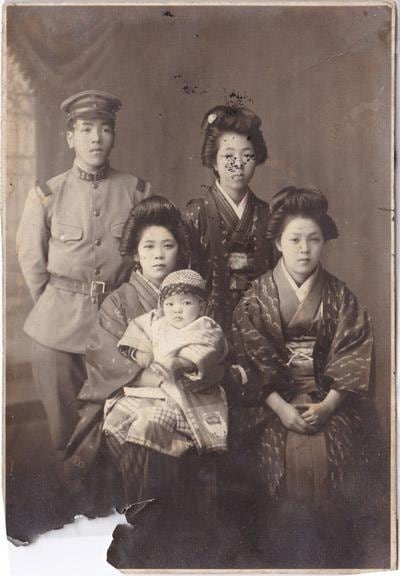Kane Tanaka was born in Fukuoka, Japan in 1903.
In January, she was officially recognised as the oldest living person on earth by Guinness World Records, and on Saturday she received the official certificate at a ceremony in her Japanese nursing home, surrounded by family at an event attended by the city's mayor.
The 116-year-old still lives in Fukuoka, where she has a daily habit of waking up early at 6am, studying maths in the afternoon and challenging other care home residents to a round of Othello, her favourite board game.
She planned to celebrate her achievement by eating 100 pieces of chocolate, a challenge she got started on as soon as Guinness Record officials handed her a celebratory box of chocolates along with her certificate.
Born prematurely on February 2, 1903, the supercentarian shares her birth year with the launch of the first ever flight by the Wright Brothers, the inaugural Tour de France race and the production of the Ford Model A - the first ever car produced by the Ford Motor Company.
It’s not the first time Japan has seen some of its residents take top honours when it comes to age. The world’s oldest man, Masazo Nonaka, died in January this year at 113-years old.
The country has some of the world’s highest life expectancy rates — 84.2 years according to the World Health Organisation. This longevity can be linked to various factors, including the Japanese practice of hara hachi bu, which means eating until you’re almost full.
In addition to this daily habit of stopping eating when their stomachs are 80 per cent full, typical Japanese people eat a relatively healthy diet consisting of fermented foods, roots, greens and fish. This also makes for a high intake of Omega-3 fats, known to protect against heart disease, which is one of the biggest killers in the western world.
The Japanese sense of community is also strong. Eating socially is the norm, something that has been linked to reduced stress levels. Daily activity levels are high with elderly residents continuing to play a key part in community events and the countrywide culture is one that values the elderly.
Despite her new title, Tanaka still has a few years to go before she takes the accolade from the oldest person in history. Jeanne Louise Calment from France currently holds that record after living to 122 years and 164 days before she passed away in 1997, according to Guinness World Records.



